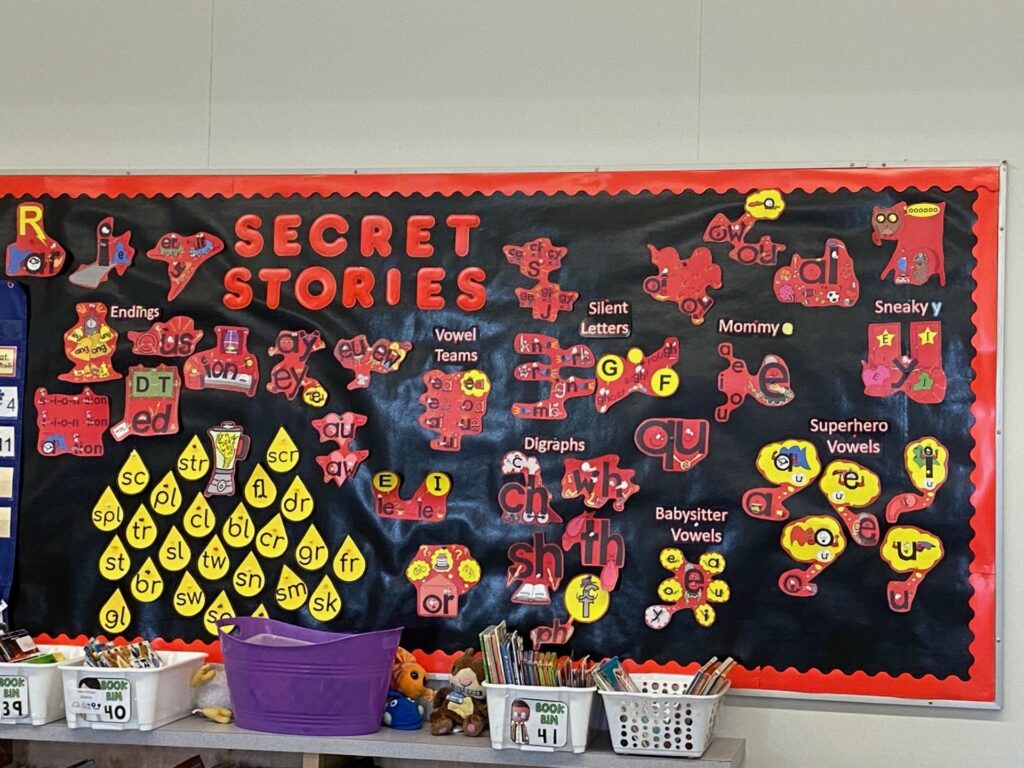In the realm of literacy, the foundational elements like phonemic awareness and vocabulary instruction accumulated during students’ encounters with language can profoundly shape their future reading abilities. As a future teacher, I have learned about the significance of phonemic awareness and vocabulary as well as practices involving those elements to develop skilled readers from Moats (2020), Lane (2022), and Nahna (2022).
Phoneme awareness, the ability to hear, identify, and manipulate individual sounds in spoken words, is a cornerstone of effective reading instruction. It enables children to decode words and comprehend their meaning, fostering fluent reading skills. Moats (2020) emphasizes that phoneme awareness, a metalinguistic skill, is a crucial part of phonological awareness, significantly contributing to word recognition. Similarly, Lane (2022) argues that phonemic awareness enhances both word reading and spelling. She highlights that developing strong phonemic awareness to the point of automaticity is essential in teaching reading. Some might suggest that explicit instruction about phonemes is unnecessary and that the focus should instead be on reading words. However, Lane contends that the benefits of phonemic awareness, such as improved reading comprehension, justify its teaching. It frees up cognitive resources, enabling students to read effortlessly.
Teaching phonemes to students is not simply teaching how to pronounce sounds. Lane (2022) notes that teachers also need to understand the articulatory gestures of sounds. In other words, enhancing phoneme awareness requires teachers and students to be aware of the sounds and the movements of airflow in their mouth. Mastering vocal gestures can allow students to strengthen their phonemic awareness, correct their pronunciation, and support orthographic mapping later.
Lane (2022) also highlights that one effective technique for developing phonemic awareness is the use of word chains. This idea is also mentioned in Moats (2020) through the concept minimal pairs, which are word pairs that contrast with each other by one phoneme. Employing word chains or minimal pairs can aid students in focusing on, identifying, and manipulating phonemes, therefore fostering robust phoneme awareness.
According to Scarborough’s Reading Rope (Moats, 2020, p. 15), building vocabulary is crucial for language comprehension and skilled reading. Students expand their lexical semantics through continuous exposures with new vocabulary (Moats, 2020). This idea is further highlighted in the webinar Oral language foundations for literacy (Nahna, 2022). She advocates for strong vocabulary development through activities such as teacher/parent read-alouds and explicit, intentional vocabulary instruction. Encouraging students to read extensively, hundreds of books and millions of words a year, can significantly enhance their vocabulary. Teachers also need to employ a range of books that can broaden students’ knowledge and support student language development. Moreover, explicit and intentional vocabulary instruction requires teachers to follow specific steps to make new words ingrained in students’ minds. Teachers need to intentionally select words, introduce them with their definition and examples or non-examples, connect these new words with students’ prior knowledge and experiences along with frequent review them with students. This approach is particularly beneficial for English learners, enabling them to enhance their vocabulary and develop into fluent readers.
In conclusion, I believe that building skilled readers starts with developing strong phonemic awareness and vocabulary. By prioritizing these foundational elements, educators can foster proficient readers, setting students on a path to lifelong literacy and success.
References
Lane, H. [OregonRTIi]. (2022, December 12). Practical Strategies for Decoding and Encoding
[Video]. YouTube. https://www.youtube.com/watch?v=Kxe-Q7QV7zA&t=3809s
Moats, L. C. (2020). Speech to print: language essentials for teachers (Third edition). Paul H.
Brookes Publishing Co.
Nahna, E. [The Education Hub]. (2022, October 19). Oral language foundations for literacy [Video]. YouTube.https://www.yout
